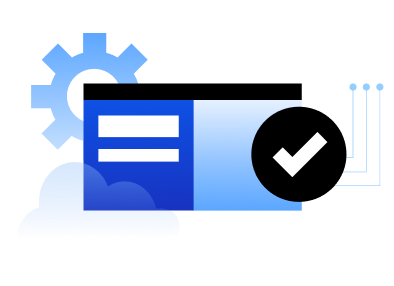AI Practitioner and Visionary’s Perspective: Time to Get Serious About AI/ML Innovation
There’s no shortage of research about where and how executives and technology leaders use artificial intelligence (AI) and machine learning (ML) to boost their business. When it comes to game-changing technologies for organizations, AI/ML is shown to strengthen product development, enhance customer service, and drive business growth.
However, many software companies, as discovered through recent research (Real State of AI/ML Capabilities in Software/Digital Native Companies), aren’t getting the results expected from implementing AI/ML in their business. The data shows IT is the primary influencer in AI/ML investment in those organizations, with IT experimentation and innovation being the principal drivers in AI/ML investment, but not for driving product innovation and business outcomes.
For AI/ML to drive product innovation and better business outcomes, should IT be the primary driver of AI/ML innovation, or should that sit with product management?
Following is the second article of a three-part series that explores how to best drive product innovation and better business outcomes at independent software vendors (ISVs) and digital native businesses (DNBs).
The first article — ISV and DNB Roadmap to Machine Learning Success — reviewed and elaborated on six foundational recommendations that came out of the above-mentioned research.
In this article, Chuck Ros, Industry Success Leader, High Tech, and Emerging Markets at SoftServe, interviews Iurii Milovanov, AI and Big Data Center of Excellence leader at SoftServe. During this Q&A, they delve into how software companies can get serious about using AI/ML from the perspective of an AI practitioner and visionary.
(In the third article, Chuck interviews Anna Strelchuk, Product Management Center of Excellence leader at SoftServe. Their conversation examines how to get serious with AI/ML from a product leader’s perspective.)
AI/ML: a Q&A

Iurii Milovanov: It's no longer the question. AI/ML technologies are already dominating the tech industry. The number of experts mentioning AI-related skills on their LinkedIn profiles is skyrocketing. Most of the innovations and technologies we use today would not have been possible without AI/ML.
And the reason is simple. AI/ML allows us to address the class of problems intractable for traditional engineering. Think about language understanding, image recognition, or even the ability to generate text. These problems are not only hard to solve but also hard to define.


Iurii: I wouldn't recommend moving from PoCs. AI/ML are highly experiment-driven technologies by design. The key is to move from experimentation to market-relevant and market-ready products quickly.
Referring to traditional engineering, where all business logic is defined by the code, in machine learning, it's the data that defines the system's behavior. As we never know in advance what data to use and what algorithm will work best for the specific problem, we need to use our experience to define the list of assumptions and the plausible hypothesis that need to be validated through experimentation and rapid prototyping.
So, the main challenge in building AI products today is establishing efficient processes for turning ideas into experiments and quickly evolving the most successful ones into production-ready solutions. This idea is at the core of what we today call ML operations (MLOps). Thanks to modern cloud technologies, we can build, automate, and scale the entire process of training, testing, and deploying ML models. These capabilities allow us to streamline and accelerate experimentation by utilizing built-in scalability and reliability.

Iurii: While AI/ML can be a powerful tool for product innovation, it's also a complex technology. Building a successful AI product requires a lot of domain knowledge and experience. And that's why I think it's important to have a dedicated team of AI/ML experts to help the product team navigate the complexity of the technology and build the right product.
SoftServe, for example, helps its clients build AI products that are technically sound and solve real business problems. We do that by providing a full range of AI/ML services, from education about the latest AI/ML technologies with our Demystifying AI/ML workshop, to use case ideation and validation, rapid prototyping, and full-scale AI product development.

Iurii: I'd recommend starting with identifying unique business opportunities and AI use cases that guarantee the highest returns in the most time-saving and cost-efficient way. This is where SoftServe’s Rapid AI Assessment service comes into play. It allows us to help our clients quickly name and prioritize the most promising AI/ML use cases and validate them with real data. This is a great way to start your AI journey and build your first AI product.


Iurii: The traditional waterfall approach is not suitable for AI/ML products. Instead, we need to use the agile approach to iterate over the ideas and validate the assumptions quickly.
Moreover, the AI/ML lifecycle is infinite and continuous. The AI product is never finished. It's a living system that needs to be constantly monitored, maintained, and improved with new data and better algorithms.

Iurii: Generative AI is indeed a revolutionary technology. But it naturally evolved from the idea of extracting knowledge from the data. With GenAI, we can hyperscale it by learning from the massive chunks of data of various types and natures. Moreover, we can now separate the processes of extracting and applying the knowledge to specific problems.
Instead of using a large amount of highly curated data to train a task-specific model, we can now use vast volumes of unstructured data to train a general-purpose model — a so-called foundational model. We can then use a small number of task-specific examples to teach our model how to use its knowledge to solve problems we care about.
As for the opportunities these technologies enable, I would group them into three categories.

The first category focuses on many ways to improve knowledge use. From deriving concise summaries from lengthy documents, such as reports, contracts, or financial statements, to question-answering against giant knowledge bases streamlining information retrieval and delivering advanced user experiences through virtual assistants that engage in natural, human-like interactions.

The second group of use cases centers around the ability to derive new insights from the knowledge. With GenAI's unprecedented reasoning capabilities, we can now draw logical conclusions based on available knowledge, evaluate potential outcomes, and find the underlying causes. Think of churn prediction in retail, fraud detection in finance, diagnosis assistance in healthcare, or incident root-cause analysis in manufacturing.

Finally, the third category of use cases focuses on the ability to generate new knowledge. This allows us to aggregate external and internal information to create contextually relevant content for reports, documentation, sales, or marketing outreach. We can also streamline cross-cultural cooperation and customer support through seamless translations, and tailor content or messaging to suit different target groups, cultures, or communication channels.

Iurii: The answer is obvious. Yes. AI/ML is the future of the software industry. It's already changing the way we build software. And it will continue to do so. The companies that use the power of AI/ML will be the ones that can stay ahead of the competition. And the companies that cannot do that will be left behind.

CONCLUSION
With its capability to automate processes and personalize experiences, AI/ML is an invaluable asset for software companies to drive product innovation and better business outcomes. Indeed, AI/ML is primed to revolutionize the ways your software company gains a competitive advantage and enables you to scale and grow in new ways, achieving success during the digital age.
If you would like more information about how SoftServe can help your organization drive product innovation and better business outcomes with AI/ML technology, let’s talk.
Look for the third article of this series, featuring an interview with Anna Strelchuk, Product Management Center of Excellence leader at SoftServe. It explores getting serious with AI/ML from a product leader’s perspective.

